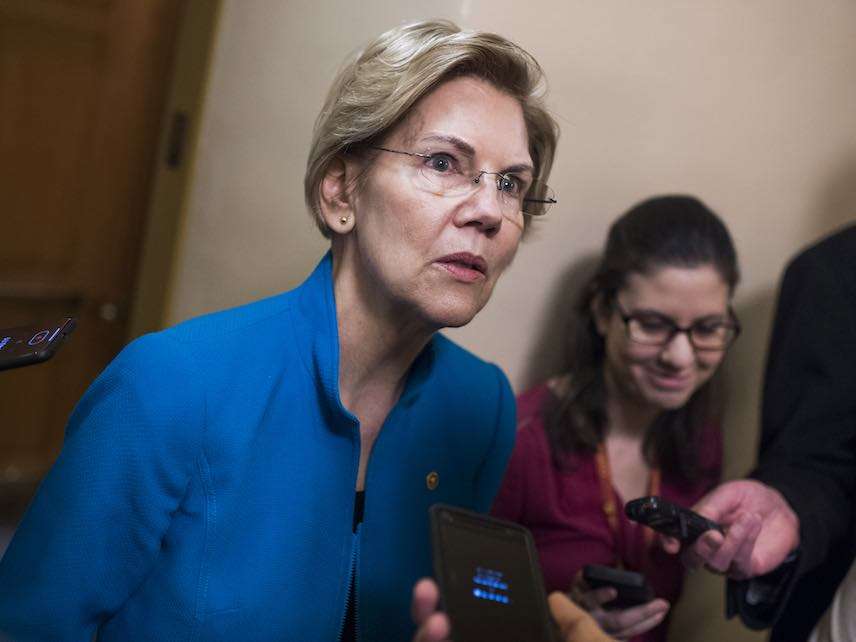Elizabeth Warren Formally Declares Candidacy, Enters the 2020 Race
"The man in the White House is not the cause of what is broken," said Warren. "He's just the latest and most extreme symptom of what has gone wrong in America."

Sen. Elizabeth Warren (D–Mass.) is officially a contender for the 2020 Democratic presidential nomination. She made her intentions clear during a speech in Lawrence, Massachusetts, Saturday morning. Her campaign kicked off with an endorsement from Rep. Joseph Kennedy (D–Mass.), who introduced her.
"We are here to say enough is enough," said Warren in her remarks. "The man in the White House is not the cause of what is broken. He is just the latest and most extreme symptom of what has gone wrong in America—a product of a rigged system that props up the rich and powerful and kicks dirt on everyone else."
The senator accused rich people of waging class warfare against the working class for years, and vowed to fight back.
"Our fight is for big structural change," Warren continued. "This is the fight of our lives."
She also vowed to break up monopolies, promised to invest in education and child care, and praised the Green New Deal.
Warren, a progressive populist, is arguably the furthest-left-leaning candidate in the race—at least until Sen. Bernie Sanders (I–VT) makes his candidacy official. Sanders and Warren differ in some respects: Most notably, Sanders would like to replace the capitalist system, whereas Warren only aspires to reform it. But like Sanders, Warren is primarily fixated on wealth inequality as the most pressing problem facing Americans—and her strategy for addressing it is to take money away from wealthy people.
How much money? Warren's proposal would tax the assets of the very wealthy at 2 percent annually, meaning they would pay it again and again every year. But if such a policy became law, most rich people would probably find ways to avoid it. The plan is best described as "a symbolic declaration of opposition to the existence of outsized wealth, irrespective of how it was obtained," wrote Reason's Peter Suderman in his negative appraisal.
Warren is also a staunch opponent of school choice reform: She opposed a statewide ballot initiative that would have allowed more charter schools to open in Massachusetts. (The initiative was defeated in 2018.) Warren's fealty to the teachers unions, a powerful group within the Democratic Party, positions her to run well to the left of rival Sen. Cory Booker (D–NJ), who has a history of supporting education reform.
Read more from Reason on Warren here.


Show Comments (206)